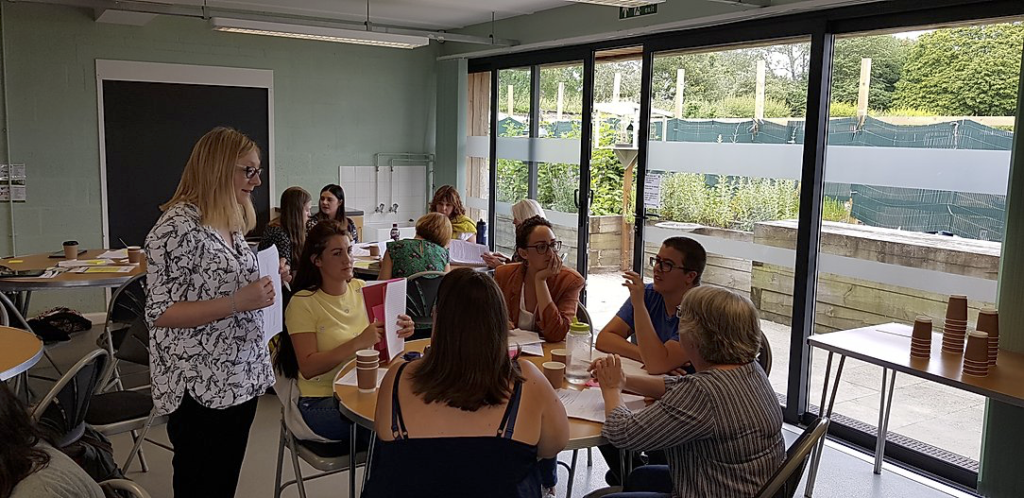This workshop aimed to provide a brief introduction to what we know about how social workers make decisions, followed by some practical exercises to test out and see what difference they might make. The workshop was led by Dr David Wilkins and Dr Catherine Foster.

The workshop began by exploring the importance of the decisions made by social workers and outlining the differences between rational and more intuitive ways of thinking. Dr Wilkins also highlighted the importance of ethics and values and said that in social work, the decisions we make about families can never be purely rational or technical.
Dr Wilkins then explained how decisions are often based on some kind of forecast about the future, however implicitly or explicitly made. And while no-one can see into the future, it may be possible to determine that some families need more help than others, or that some people might benefit more (or less) from particular forms of support.
Workshop participants were then given some quick tasks to try out, to help them consider their own forecasting abilities. For example, Dr Foster asked everyone five ‘general knowledge’ questions about social work, to help us understand whether we were generally over-confident, under-confident or well-calibrated.


Dr Wilkins then talked about the Fermi method, which helps to highlight any assumptions being made as we consider different decisions. Using this method, we tried to answer the question – ‘how many referral and assessment social workers are there are in Birmingham?’. No-one knew the right answer but by considering a series of related questions, such as how many people live in Birmingham, how many children are referred each year and how many assessments can one social worker complete each week, we were able to come up with a reasonable estimate.

After a short break for coffee, we separated into small groups to apply these techniques to some case studies. Each member of the group read the same case study and answered some questions about what might happen next. We then discussed our answers as a group and considered whether we wanted to change our initial responses. After a couple of rounds of discussion, each group came up with a set of agreed answers to each of the questions.

The results from this activity proved interesting. In many cases, groups can come up with more accurate forecasts about what might happen next than individuals. In our workshop, the opposite happened, with some individuals showing more accuracy than the groups.
Thank you to Dr David Wilkins and Dr Catherine Foster for delivering the workshop.

